CES 2017: 15 Of The Strangest, Weirdest Products We've Seen
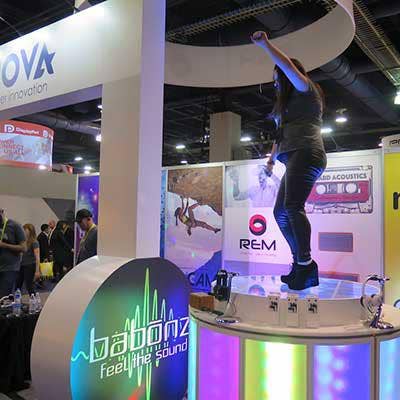
Keep CES Weird
In the strange world of CES, the annual Las Vegas gadget bonanza, some products go above and beyond (at weirdness). A sampling from CES 2017: a mosquito-killing robot, a phone case that detects air quality, "ear-free" headphones and a smart hairbrush. In the following slides, we've rounded up 15 of the products that kept the CES reputation for strangeness intact this year.

Mosquito Killer Robot
There's nothing worse than pesky mosquitos – and now, why run around the house with a flyswatter trying to catch them when you have the Mosquito Killer Robot?
Chinese company LeiShen Intelligent, which specializes in high-performance lasers and autonomous navigation robots, was showcasing its laser movable robot at this year's CES. The company claims that its robot recognizes mosquitos and zaps them with a laser. No sales have been made yet – but the company is hoping this product will appeal to hospitals and schools that may be prone to mosquito-transmitted diseases like West Nile Disease or the Zika virus.
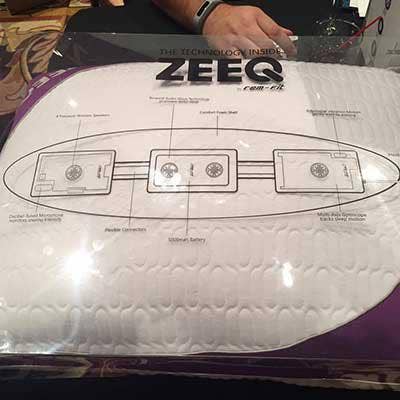
Zeeq Smart Pillow
Vendors are putting internet of things technology anywhere, even pillows. At CES, consumers got a preview of Zeeq, a smart pillow with built-in speakers that plays music and tracks the user's sleep.
Zeeq has a feature that wakes users based on data collected with a built-in gyroscope. This collects information about movements throughout the night and wakes up sleepers based on those patterns. The pillow also has a snore alarm for noisy sleepers that nudges snorers into a new sleeping position when it detects snoring through a microphone.
Zeeq is still on Kickstarter and available for pre-order at $249.
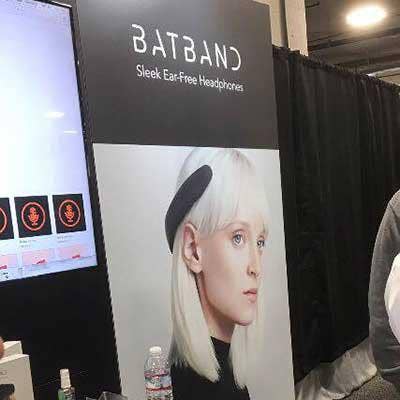
"Ear Free" Headphones
Apple may have changed the game with their wireless earpods, but Batband wants to take the need for your ears away from the equation completely with their "ear-free" headphones.
Batband uses a piece of technology called "bone conduction system" to emit sound waves conducted through the bones of the skull that can be perceived by the user's inner ear. With Batband wireless headphones, which are currently on the market for pre-order at $200, users can listen to the outer world while still focusing on their headphone music.
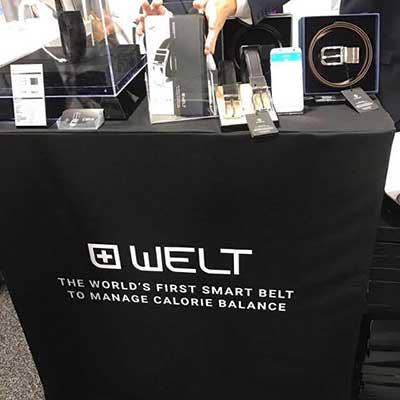
Welt, The Smart Belt
Everyone has had that one meal that makes them sit back and loosen their belt afterwards – but now, there is a belt that will chastise you when this happens. Welt, a smart leather belt, comes with magnetic waist sensors embedded on the buckle to track waist size and overeating habits in real time, in addition to tracking your steps, sitting time, and food intake.
Welt connects to a companion app so users can take actionable insights and set health goals. The Welt Causal is currently on Kickstarter and is available for pre-order at $99.
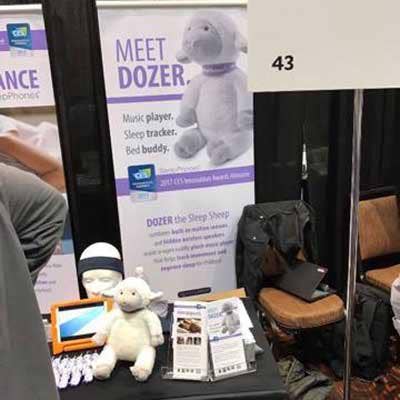
Dozer The Sleep Sheep
If you are already a little creeped out by connected products, you may want to forget about giving Dozer to your children. It may look like a cuddly toy on the outside but, on the inside, the "sleep sheep" is packed with sensors to help track the movements of your child, along with a companion app (in development) to help parents understand their child's sleep patterns. Dozer also comes pre-loaded with naptime music to sooth kids to sleep. Dozer, which will be available "sometime after Labor Day in 2017."
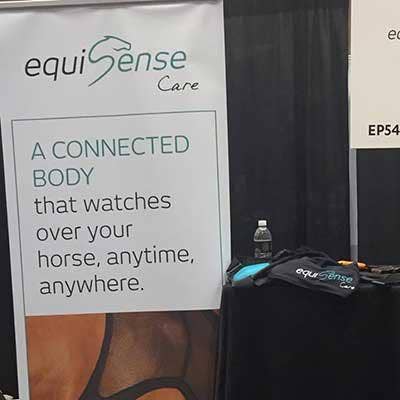
Equisense Connected Horse Wearable
Forget about buying a wearable for yourself when you can get one for your horse. Equisense, a connected device for equestrian sports, helps riders and their horses to progress while improving the horse's well-being.
Through Equisense, which is placed on the girth through a leather attachment, horse owners can monitor their animals' workout intensity, build up their horses' muscles, and share sessions with their vets via a companion app for more accurate diagnoses. The Equisense connected horse wearable is available for pre-order, and currently costs around $249.
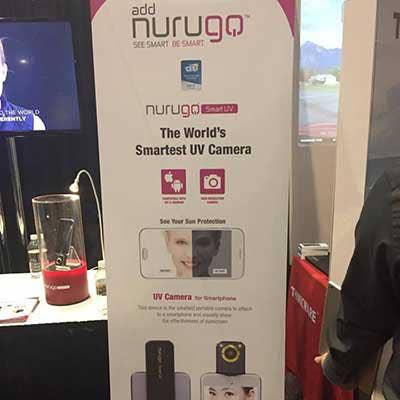
Smart UV Camera
Nurugo has brought the smartphone camera function to the next level with SmartUV, which allows users to view pictures in UV. This connectable camera allows users to see what their skin looks like by capturing it in the invisible UV spectrum. The idea behind SmartUV is that users can make smarter ideas about skin health and check the effectiveness of sunscreen. There are two SmartUV variants -- one for Android smartphones with a Micro USB adapter, and the other for iOS devices with a Lightning adapter. The SmartUV camera is still under production, with a retail price of $195.

Aera Smart Fragrance
It may be a hassle to cover the smell of dirty laundry when guests come over, and Aera wants to erase that pain at CES with its Smart Fragrance product for smart homes.
This product contains a variety of different fragrance capsules that can be triggered through a companion app. So, if you are driving home and know that guests are coming over, you can schedule the Smart Fragrance product to turn on from your phone.
The Aera Starter Set is currently available for $189. This set includes the device and a fragrance capsule.
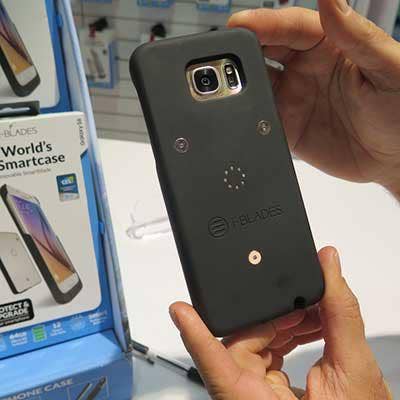
i-Blades Smartcase
There are plenty of rugged cases out there meant to protect your smartphone, but the i-Blades Smartcase may be the first that's actually trying to protect both your smartphone and you. The case comes with drop and impact protection, but also adds the ability to monitor air quality. The company behind the case, Milpitas, Calif.-based i-Blades, says the "enviro sensor" was added because there had previously been no portable air quality solution on the market. The case can also connect to an attachment that doubles the battery life and adds storage. The i-Blades Smartcase, which is available for Samsung Galaxy phones, is priced at $79, while the case plus the attachment is priced at $99.
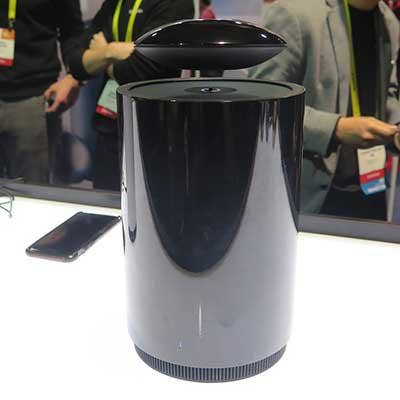
Mars Levitating Speaker
Premium audio quality? Got it. Wireless connectivity? Got it. Speaker that looks like a UFO and floats suspended in midair? Yup, got that too. Mars, made by China-based Crazybaby, brings an other-worldly design with its UFO-shaped speaker driver, which "levitates" above a base station that houses a 3.75-inch subwoofer. The levitation effect is produced by tapping magnetic forces, and it's not just for looks--Crazybaby says separating the speaker and base eliminates vibration and improves the resulting sound. Mars by Crazybaby is available for $300.
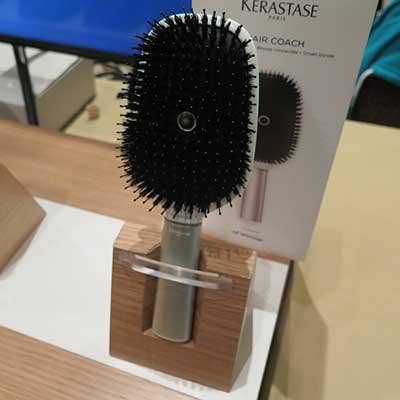
Hair Coach
Is the world really asking for a smart hairbrush? Well, it's getting one anyway: the Hair Coach, made by France-based Withings, tracks how you're doing at brushing your hair and serves up some personalized advice via an app. For instance, the Hair Coach can tell whether you're using the ideal force and rhythm while brushing your hair and will make suggestions to improve your habits. The Hair Coach will be available in fall 2017, and the price will be less than $200, though the specific price hasn't been released.
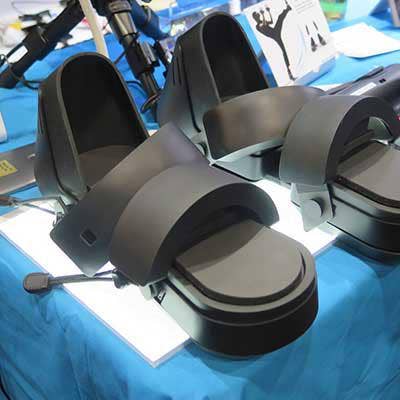
Taclim VR Shoes
Part of the fun of video games is that you don't have to feel anything, right? Tokyo-based Cerevo is challenging that notion with Taclim, a virtual reality shoe. Taclim includes haptic sensors that provide feedback to users based on what they're doing in a VR world; for instance, a user might feel the sensation of kicking an enemy with their foot (or more serenely, of walking on snow or grass). Taclim is being developed to work with major VR headsets including Oculus, HTC Vive and Playstation VR. The device is expected to be available in the U.S. in fall 2017, and pricing has not been finalized.
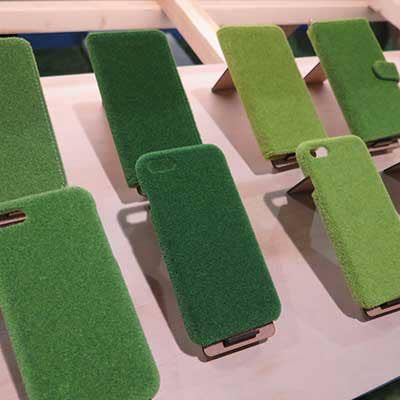
Shibaful Smartphone Case
Described as the world's first lawn iPhone case, the Shibaful case is made with fibers that look and feel a bit like the grass in a park. Produced by Japan-based Shibaful, the cases are created using electrostatic flocking technology, which aligns the fibers, and the case aims to put users more at ease when using their devices. The cases come in a variety of designs include a standard park-inspired, single-color design; shape designs; and sport designs. Shibaful cases are available on average for $40-$45.
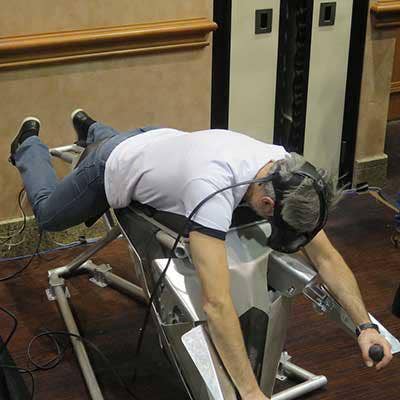
Hypersuit VR Simulator
Hypersuit is a full-body virtual reality simulator under development by Paris-based Theory, which is developing both the hardware and VR games to work with the simulator. The aim is to make the VR experience more immersive by letting users feel like they're really flying or diving, for instance; the movements in real life translate into movements in the game. Theory is not aiming to develop Hypersuit for the home, but instead envisions renting it for use in settings such as theme parks and malls. The Hypersuit simulator can support any VR platform, according to the company.
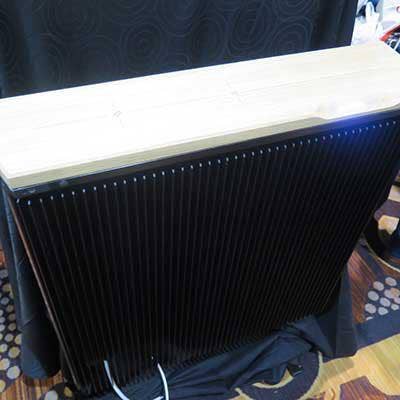
Hot Computing
The Q.rad is a new product with some identity issues, as it's equal parts computer and heater. Computing, of course, generates a lot of heat--which the product's designer, Montrouge, France-based Qarnot, sees as a plus rather than a minus. The Q.rad is firstly part of distributed computing infrastructure that is split up to users via a cloud computing service. And secondly, the heat produced by the computing provides heating for smart buildings (free of charge) – and it's silent, too. Qarnot says the Q.rad is being distributed on a case-by-case, business-to-business basis currently.